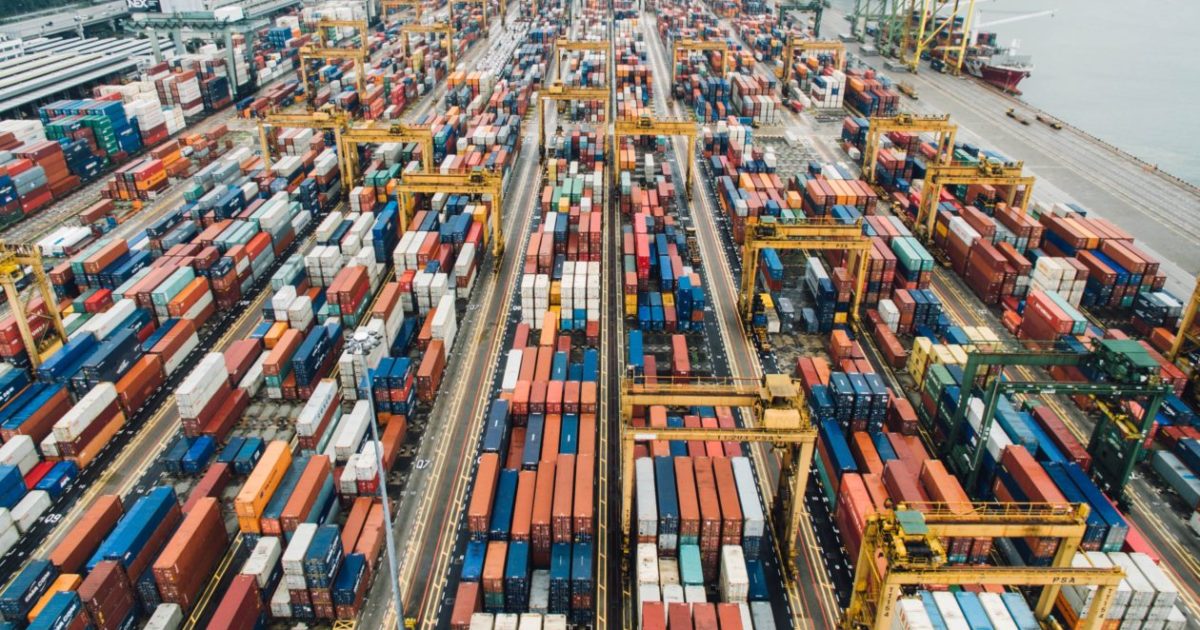Shipping is the lifeblood of the global economy and manufacturing supply chain. More than 80% of global trade by volume is carried by sea, of which over 60% passes through Asia, according to the United Nations.
With the Delta variant fueling anew the Covid-19 pandemic as well as a lack of shipping capacity and port congestion, freight rates are skyrocketing. In a recent paper, global financial messaging services provider SWIFT said that the friction and inefficiencies of the manual and paper-based nature of global trade have been hugely magnified by the pandemic, with reports of couriers being unable to deliver physical documents required.
Hong Kong-based Global Shipping Business Network (GSBN) — a consortium founded by eight shipping lines and terminal operators — is on a mission to redefine global trade through a new blockchain-enabled trade platform and accelerate the digital transformation of the shipping industry.
The shipping industry’s digital leap
GSBN this week announced the launch of Cargo Release — an application that uses blockchain technology to connect the shipping supply chain, including shipping lines, consignees, their agents and terminals. The coordination and verification provided by blockchain eliminates the need for time-consuming manual processing of paper documentation. The blockchain platform is now available in Hong Kong, Singapore and Laem Chabang in Thailand following its successful launch in China in July.
“Southeast Asia is a strategically important hub for trade and the rollout of Cargo Release in the region marks an important milestone in the shipping industry’s digital leap,” said Bertrand Chen, CEO at GSBN, in a news release. “We are fully committed to supporting this push by harnessing our operating system to drive efficiency, resilience and trust across all market participants.”
Eddie Ng, Vice President (Group Cargo Solutions / Platform Development) at port operator PSA International, one of GSBN’s founding members, said: “Digital transformation is absolutely fundamental to the future of trade in Asia. Cargo Release is a digital solution that has the potential to drive new efficiencies and support the region’s status as a thriving global trading hub. More importantly, Cargo Release demonstrates the value of trusted and secure sharing of data between supply chain ecosystem partners.”
Collaboration and common standards
Given the complexity of the shipping ecosystem, collaboration by industry stakeholders and different jurisdictions as well as common standards are among the key factors that determine whether a digital transformation of the industry would be successful.
Singapore, the world’s top global shipping hub according to the 2021 Xinhua-Baltic International Shipping Centre Development Index, earlier this year successfully conducted a trial with Rotterdam to transfer an electronic bill of lading (eBL) across two different digital trade platforms — Dltledgers from Singapore and NaviPorta from the Netherlands.
The bill of lading is a legal document issued by a carrier to a shipper that includes shipment details such as the type of goods, quantity, freight rate and destination. It represents the agreement between the parties involved and helps guarantee that exporters receive their payment and importers receive their goods.
The eBL trial between Singapore and Rotterdam marked a milestone towards the digitalization of the important Europe-Far East trade route, which the two major transhipment ports serve, said Chee Hong Tat, Singapore’s senior minister of state for transport in a speech. There was tangible commercial value, Chee said, with significant time savings in using the eBL — from an average of six to ten days when using a hardcopy to less than 24 hours when using an eBL.
The trial was facilitated by Singapore’s TradeTrust, a set of globally accepted standards and frameworks initiated by the Singapore government. Singapore, in February, paved the way for digital maritime trade documentation like eBLs, through amendments to its Electronic Transactions Act, which allows for the creation and use of eBLs that are legally equivalent to paper-based Bills of Lading.
Atul Patel, co-founder of Dltledgers, the Singapore-based blockchain platform for trade and supply chain digitization that participated in the trial, told Forkast.News that Singapore’s TradeTrust and the Digital Economy Partnership Agreements signed with countries including Chile, New Zealand and Australia to facilitate end-to-end digital trade helps companies like Dltledger capitalize on the digitalization trend.
Patel said companies would do well to consider digitalization and blockchain given the potential cost savings — 20% of the cost in any cross-border trade could be attributed to cost of paperwork and documentation. According to the Digital Container Shipping Association, there could be US$4 billion savings annually if half of today’s shipping lines adopt eBLs. Fraud would also be reduced, as blockchain technology could enable easy verification of the authenticity and provenance of trade documents, compared to the traditional process where documents had to be mailed or physically handed over from one party to another.
The maritime and shipping sector has much to gain from blockchain technology, Samir Neji, founder and CEO of Dltledgers, told Forkast.News. “This is a pivotal moment in export and import digitization and businesses involved in all aspects of cross-border transactions are on the cusp of a major transformation.”




